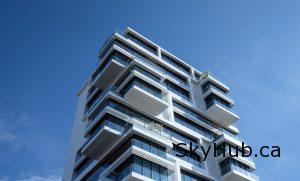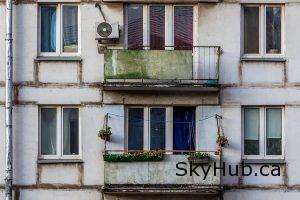There’s nothing under the sun that doesn’t grow. Even condo complexes do, and we can all agree that changes occur when something starts getting old. Many condos were constructed decades ago and with time, these condos begin to age, encountering various problems that, in one way or another, compromise their structural integrity and overall outlook.
However, the phrase “too old” is relative and may carry a different meaning from one individual to another. This article discusses when a condominium is considered too old and what happens to it once it is too old. Let’s get started!
What is the Average Lifespan of a Condominium?
In today’s world, apartments are built using durable, high-quality materials and advanced technology. This helps withstand future inconveniences and the daily stress of the safety and durability of the apartments. On average, condo buildings can last up to 50 years to be termed as too old. However, most condominiums may look good even after fifty years.
Additionally, a condo building retains its value and profitability even after hitting 50 years and above as long as it passes building inspection and certification. So, based on real estate and land values, the building will continue to exist as long as buyers are willing to buy, regardless of age.

Source: pexels.com
Here are factors that help determine if a condominium is uninhabitable:
● If the condo building has existed for at least 50 years and is not in good condition.
● If the condominium is archaic and unprofitable by the age of 50 years.
● If the owners are not up for needed repairs and restorations concerning the condominium.
It is only in these cases where a condominium can be considered obsolete. However, if the circumstances are different, let’s say the owner considers repairing the condo when need be or the apartment is profitable and modern, it can be regarded as habitable whether it is 50 years or more. Everything just depends on the circumstances.
What Happens to a Condominium After 50 Years and Above Without Inspection
A decline in Property Value
The age of a condominium may affect the overall value of the property. Potential buyers prefer newer structures since they have contemporary facilities. This is because newer buildings have a modern look and feel.
When a condo building starts to age, its functioning and appearance also change, which leads to a decrease in building price and value. This makes it hard for the current owners or residents to resell their homes because no one wants to buy a property that looks antiquated.
Deterioration of the Structure
When a condo building grows old, the structure starts degrading. Structural deterioration is usually brought about by years of use and exposure to various elements. For instance, the walls of the condo may develop cracks, the same as the foundation of the building.
This results in water leaks and, therefore, negatively affects the stability of the structure. If the cracks are not attended to, the degradation becomes dangerous, affecting tenants’ safety and needing costly repairs and significant restorations.
If your condominium walls start cracking, causing water leaks, it is good to seek professional condo renovation services from reputable companies such as Construction Solutions Group Inc (CSG). The company focuses on various renovation services, such as condo renovations. As a trustworthy and reputable company, they will help with all your remodelling projects and provide solutions to make your old condo look fresh and modern.
Increase in the Infrastructure Maintenance Cost
One thing that happens when a condo gets old is that the cost of the building’s infrastructure shoots up high. For instance, electrical, heating and cooling systems and plumbing will need replacement, increasing costs. This overall affects both the owners and the tenants.
On the one hand, owners may face tenants vacating the house, leading to a decrease in profits and more vacant condos, while on the other hand, tenants may be required to pay more maintenance fees, unlike before. Additionally, locating and replacing components needed for these systems may be difficult, leading to delays in repairs and maintenance.
Challenges with Condo Building Laws and Regulations Compliance
The more a condo complex grows old, the more challenging it becomes to comply with the set rules and regulations. This is because the building laws and regulations change occasionally, which calls for ensuring that your building meets all the constraints put in place.
However, the problem is that getting a permit for renovations or additions is where the problem comes in. Thus, it becomes harder and more expensive to ensure that the building complies with the current safety and accessibility regulations.
Limited Accessibility
Old condo complexes are different from modern ones, which are suitable and favouring to everyone, including people with mobility issues.
As a condominium gets old, accessibility becomes a challenge as it may not have the necessary elevators, ramps, or entrances, making moving around the building a hard process for the occupants.
Reduced Energy Efficiency Leading to Higher Utility Costs
Old condo buildings hardly have energy-saving technologies. This means they are not made more energy efficient, hence not providing occupants with economic savings. This results in an increase in the cost of utilities and a negative environmental impact.
What Happens If You Live in an Outdated Condo
Whenever you purchase an apartment in a condo building, you automatically become a shareholder in the business. That said, as a shareholder, you have the same rights and privileges to vote as other shareholders.
If you live in an outdated condo, you can vote on things like changing pool tiles, adding gym facilities and repainting the condo complex. You can also vote on factors regarding the fate of your condominium after fifty years.

Source: depositphotos.com
Based on the Condominium Act, if a corporation sells a building, the owners should receive a certain percentage of the proceeds equal to their share of the monthly fee. If 80% of the owners voted in favour of the sale, then a Corporation may sell the condo property on the voting date. So either the old condo may get sold, or it may be repaired based on the decisions made by the shareholders.
Potential Solutions and Strategies to Use When a Condo Building Gets Too Old
There are several things you can do to curb the challenges that come with a condo building getting too old:
● Opt for regular maintenance and inspection: Establish a routine maintenance schedule and conduct regular checks. This will help identify and address any issues as early as possible before they become more costly and significant.
● Renovate and modernize your condo building: Updating common areas, adding amenities and enhancing the interiors of your condo complex plays a significant role in the lifespan of your structure. Therefore, ensure renovations and modernization are done often.
● Upgrade energy-efficient features: Lighting, insulation, and energy-efficient appliances must be upgraded regularly. This will help reduce utility costs and also contribute highly to attracting environment-conscious residents.
● Compliance with Laws and Regulations: Ensure your condo building complies with the regulations to avoid future costs and inconveniences.
● Reserve fund planning: Condo associations should be in place with a well-funded reserve account. This account comes in handy when unexpected repairs and replacements are needed.
Wrap Up
Condo buildings face several challenges as they grow old. These challenges affect both the tenants and the overall appearance and value of the condo. From increased utility costs, decline in value, decrease in property prices, and outdated infrastructure to increased cost of maintenance, all these and much more happen when a condo building gets too old.
However, with reserve fund planning, compliance with condo building laws and regulations, upgrade of energy-efficient features, renovation and modernization and regular inspections, condo buildings can last long and remain secure, aesthetically pleasing and cozy. A place tenants can call home.
What Happens When a Condo Building Gets Too Old
Share



